Experiential therapy is an umbrella term that applies to a range of action- and movement-based forms of psychotherapy.
History of Experiential Therapy
First used in the 1970s, experiential therapy uses a wide range of activities (such as role playing, wilderness adventures, expressive arts, animal-assisted experiences and trust-based activities) to identify and address hidden or subconscious issues that may not reveal themselves via more traditional forms of therapy.
For residents who have previously participated in more traditional forms of psychotherapy (primarily talk therapy in a clinical or office setting), experiential therapy can be particularly effective due to its ability to take the resident’s focus off the therapy itself and encourage them to function “in the moment.”
For example, while completing a ropes course, the resident will be focused on mastering what first may appear to be an insurmountable task and will be more likely to let their guard down than they would during a traditional individual or group talk therapy session.
What are the Benefits of Experiential Therapy?
During experiential therapy sessions, residents have the opportunity to experience successes, identify obstacles, develop improved self-esteem, and take greater responsibility for their actions. After the experiential therapeutic activity, they have the opportunity to process their emotions and receive specific feedback based upon their decisions, actions, and reactions.
Though not necessarily a primary focus of experiential therapy, the activities that residents participate in may also serve the purpose of providing them with new ways of filling leisure time or other “down times” during their daily lives.
This may be particularly important for individuals who are in treatment for substance abuse and addiction, because part of the recovery process involves finding healthy and productive leisure activities to fill the hours previously occupied by searching for, acquiring, and using alcohol or other drugs.
What Conditions/Disorders Does Experiential Therapy Treat?
Experiential therapy has been an effective component of comprehensive treatment programs for individuals who are struggling with a range of issues and disorders.
Experiential therapy has been successfully integrated into treatment programs for adults and teens who are receiving treatment for alcohol, chemical dependency, mood disorders, eating disorders, bipolar disorder, and a host of other related conditions.













